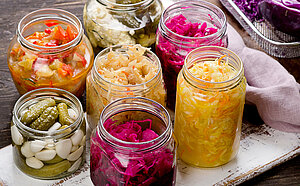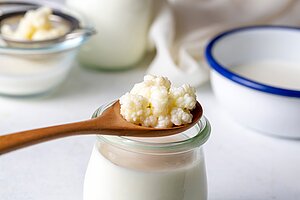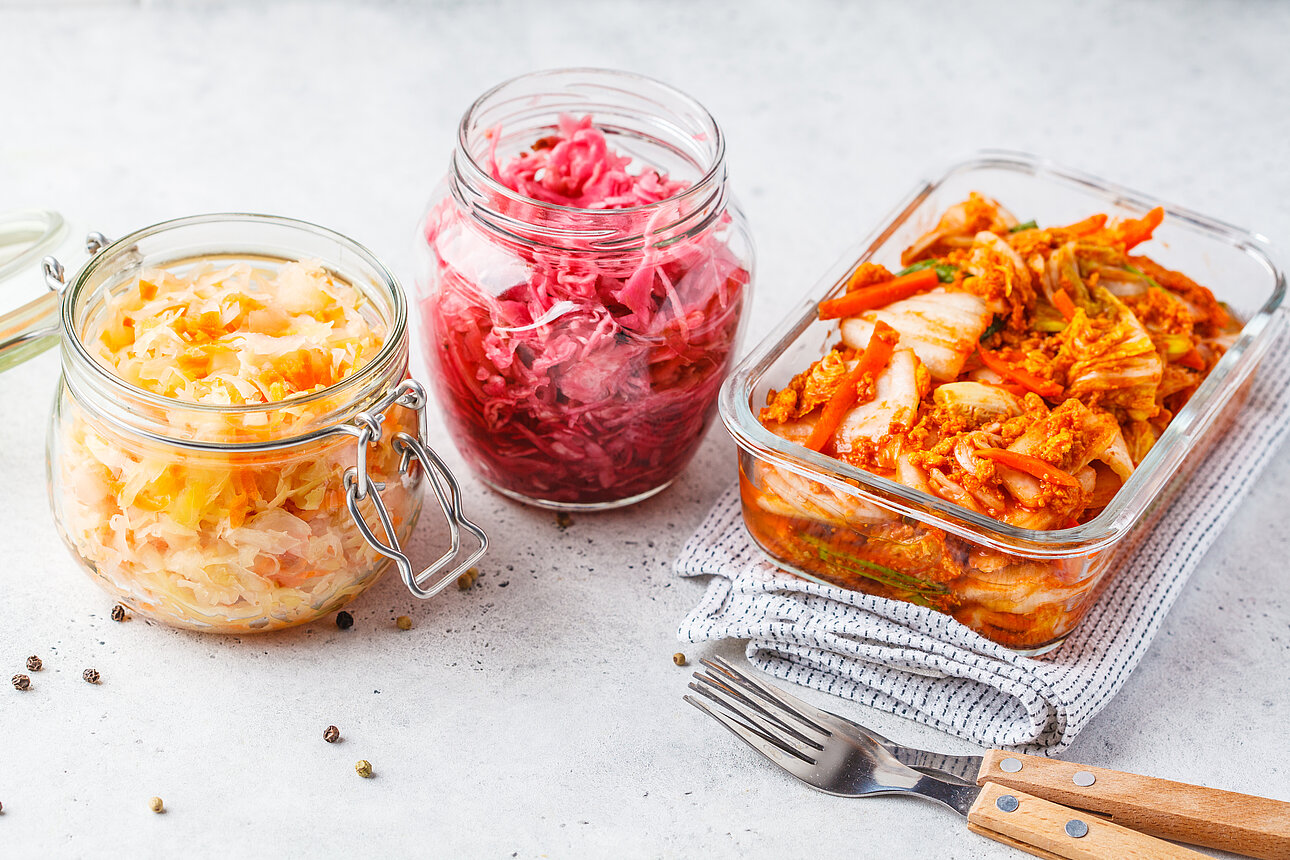Consumer interest in healthy diets is nothing new. Recent years have seen growth in demand for foods that satisfy alternative diets and allergy needs, from vegetarian and vegan to gluten-free and dairy-free options.
With growing awareness of the connection between gut health and overall health, many consumers are incorporating more gut-healthy items into their diets. Among these are fermented foods, including traditional options like yogurt and sauerkraut, along with more recently popular items like kombucha and kimchi.
Between 2019 and 2023, the market for fermented foods grew by 7.5% CAGR, and it is forecast to become a $1.25 trillion industry in the next 10 years.
As a food manufacturer, you have an opportunity to step in and fill the gap by providing the fermented foods retail businesses and consumers are seeking.
 What Is Fermentation?
What Is Fermentation?
Fermentation is a traditional form of food preservation that relies on yeast and bacteria to break down carbohydrates in food (including sugar and starch), transforming them into acids or alcohol.
This process produces a unique flavor that can be both sour and tangy. Fermented foods can increase the diversity of beneficial bacteria in a person’s gut microbiome, making it more resilient and better able to withstand pathogens since much of the immune system is based in the gut.
Benefits of Fermented Foods
Probiotics are a natural byproduct of fermentation, and consuming them has been shown to contribute to a healthy and balanced digestive system. This, in turn, could help improve immune function and heart health and potentially aid in weight loss.
Some studies have even shown that incorporating fermented foods may help ease anxiety since gut health has a strong connection to mental health. It’s not surprising that health-conscious consumers are interested in fermented goods, and manufacturers and retailers must work together to meet growing demand by offering a range of fermented foods and beverages.
Related: The Evolution of Health Supplements: From Gummies to Dissolvable Discs and Beyond
 Kombucha
Kombucha
Made with tea, sugar, yeast, and bacteria, kombucha is best described as an effervescent, soda-like beverage that’s lightly sweet and tart with a hint of vinegar. It features probiotics, as well as vitamins and minerals.
Kombucha feeds the good bacteria in the gut, increasing them while simultaneously decreasing any harmful bacteria.
Current trends include exploring innovative flavors like guava and hibiscus lime, as well as innovative packaging, such as reusable aluminum bottles.
 Kefir
Kefir
There are already several yogurt products on the market touting the health benefits of probiotics. Kefir is a drinkable alternative made from milk or sugar water paired with kefir grains.
Kefir grains break down sugar in the beverage to produce a sweet/sour taste, along with about 60 types of beneficial probiotics.
It has a greater variety of beneficial microorganisms than yogurt does, and it’s easier to digest for those with sensitivities to dairy. In fact, one trend gaining popularity in the kefir market is lactose-free beverage options.
Stay informed about gut health and more! Sign up for our Newsletter here
 Kimchi
Kimchi
Often served as a side dish in Korean cooking, kimchi is made by fermenting vegetables like cabbage, cucumbers, and radishes in a brine of salt and flavorings like garlic, onions, and pepper.
One clinical trial compared diets rich in fermented foods like kimchi to a fiber-rich diet. The fermented foods showed more diversity in the gut microbiome, which offers protection against conditions like diabetes and obesity that are linked to low microbiome diversity.
Competing in the kimchi market could mean experimenting with different vegetable and spice combinations.
 Catering to Consumer Demand
Catering to Consumer Demand
Businesses that sell to consumers make purchasing decisions based on what their consumers want. It’s wise to keep your finger on the pulse of consumer demand so you can predict the types of products that will work for commercial partners.
As more people discover the link between gut health and overall health and turn to fermented foods to boost their microbiomes, the market will continue to grow.
Want to learn more about our products, trends & insights? Get in touch with a team member at Symrise today, Contact us here!





